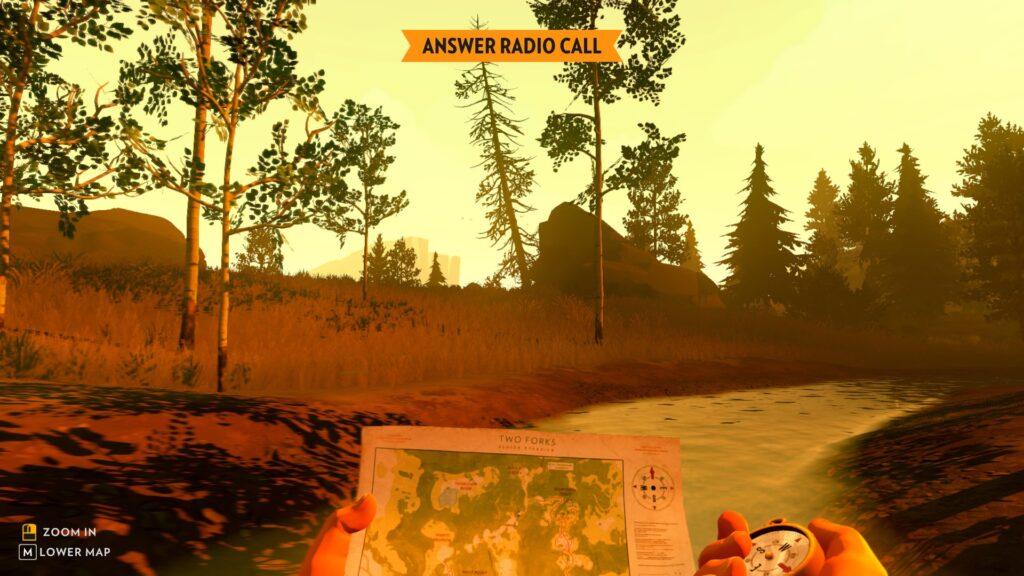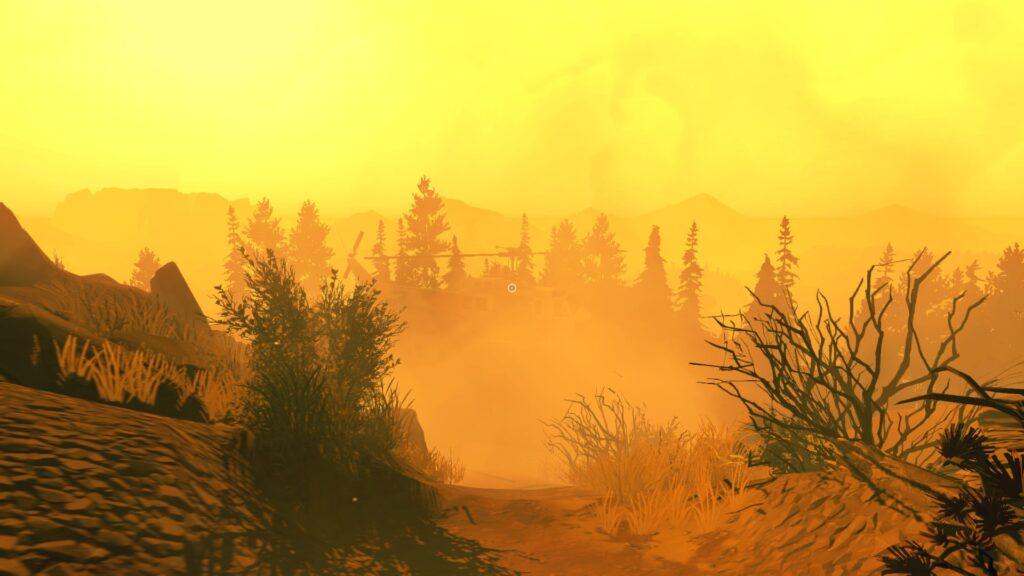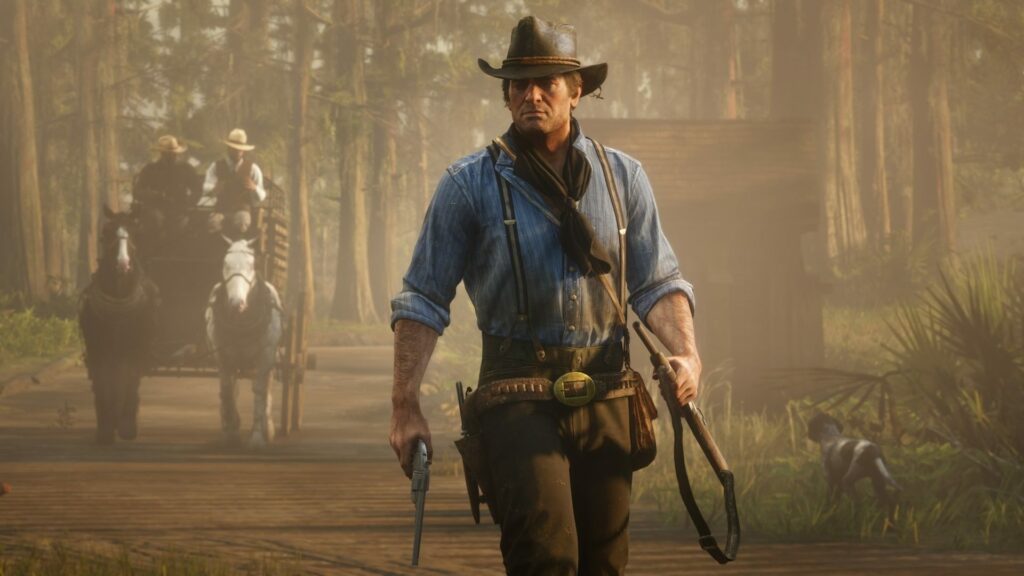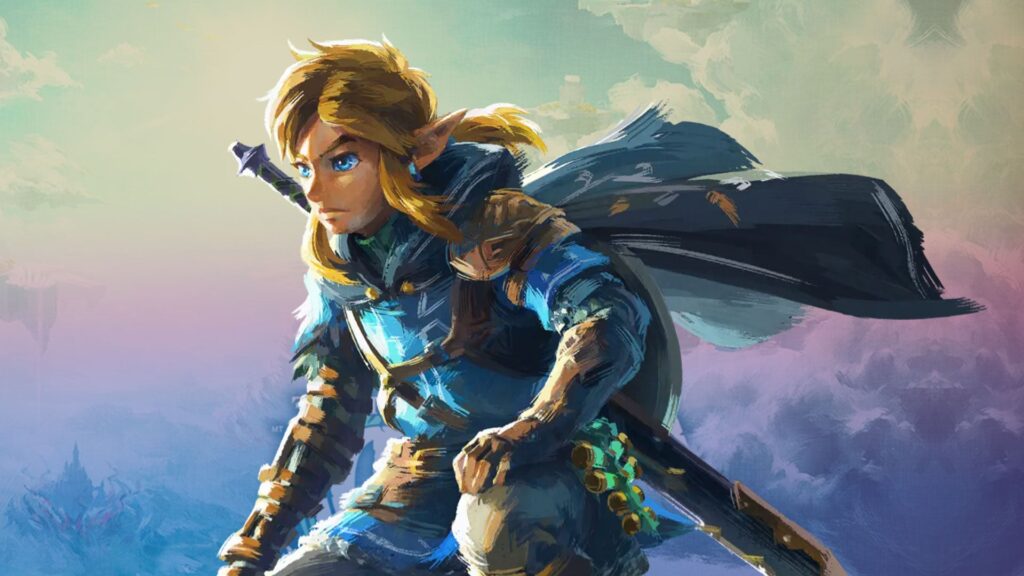Firewatch review: A quiet forest, a broken man, and a mystery that lingers. But what makes it unforgettable? Is the Firewatch game worth playing in 2025?
Firewach is a 2016 interactive fiction game which was developed by Campo Santo and published by Panic. It was released on February 9, 2016, for PC and PlayStation 4, with later versions for Xbox One and Nintendo Switch. On the surface, the Firewatch game seems like a small indie title with cartoonish visuals and almost no traditional mechanics that we expect to see in video games. But hey! appearances can be deceiving, remember? Firewatch is one of the rare narrative-driven experiences that lingers in your mind long after you finish it. While other games overwhelm with spectacle, the firewatch game is pure art which is not about graphics or realistic visuals but about the strange, haunting feeling the game leaves behind.
Read this Firewatch review if you haven’t played the game yet and want to know if it is really worth your time (and money!)
Firewatch Game Plot
(Mild Spoilers)

The Firewatch game plot is deceptively simple. You play as Henry, a young man approaching middle-age running away from a life he no longer knows how to handle. His wife Julia suffers from early-onset dementia, and instead of staying by her side, Henry chooses the cowardly escape route. He takes a summer job as a fire lookout in the Shoshone National Forest of Wyoming. His responsibility is to keep watch over the wilderness, report any smoke, and spend three months in isolation.
Except he is not fully alone. Delilah, his supervisor, communicates with him through a walkie-talkie. Their conversations form the heart of the story. At first, the two exchange banter and small talk. But soon the relationship deepens, revealing regrets, insecurities, and the wounds both the characters carry. As we progress through the game, the forest begins to show signs that something darker is happening. Strange figures appear in the distance, Henry’s tower is vandalized, and there are hints of surveillance. For a while, the firewatch game plot feels like it is pushing toward a grand mystery.
Yet, the truth is far more human. The story might not end with the supernatural revelations and mind-blowing twists some of us might have expected. Instead, it reminds you of how ordinary life itself can be painful, and how human mistakes cannot always be undone. It is not about saving the world, it is about carrying guilt and loneliness. This is what makes Firewatch unforgettable.
Firewatch Gameplay
The Firewatch gameplay is best described as minimalist. There are no combat mechanics, no skill trees, and no puzzles that require you to pause and think for hours. Instead, the focus is on exploration and dialogue. You navigate the Shoshone forest using a paper map and compass. Unlike many modern games that shower players with glowing waypoints, here you are forced to actually read the map, orient yourself, and walk the trails like a real hiker.
The other key mechanic is dialogue choice. Through your walkie-talkie, you select responses when speaking with Delilah. These choices shape the tone of your relationship, though they do not alter much in the game nor do they lead to multiple endings. The subtle changes in conversation give the illusion of intimacy and personalization, making you feel as if you are truly building a connection.
Silence is also part of the Firewatch gameplay. Long stretches of walking without music or dialogue allow the weight of isolation to sink in. The Firewatch game is able to somehow emptiness into a mechanic, and this is one of its boldest achievements. Instead of distracting you with constant action, it lets your thoughts echo in the quiet, amplifying the melancholy of Henry’s situation.
Graphics and Sound

Visually, the game avoids realism. The art style, worked upon by Olly Moss, is painterly and stylized. I found this worked well to capture mood, even if they looked cartoonish compared to today’s games that focus mostly on realism. The forest is drenched in warm oranges, deep purples, and soft blues that shift with time of day and weather. At first glance, the visuals may seem cartoonish, but in practice they heighten the mood. The sunsets feel like oil paintings, and the distant mountain ranges shimmer in a way that feels dreamlike.
Sound design is another quiet strength. The forest is alive with rustling leaves, chirping birds, and the low moan of wind sweeping through the trees. Every footstep echoes differently depending on the terrain. The soundtrack itself is sparse, reserved for emotional peaks. But when it swells, it does so with restraint, underlining moments of vulnerability.
The Firewatch voice actors did a terrific job and are the heart of the immersion. Rich Sommer voices Henry with a weary vulnerability that makes you believe every sigh and hesitation. Cissy Jones voices Delilah with warmth, sarcasm, and fragility, balancing humor with heartbreak. Despite having only two main characters, the game relies heavily on vocal performance, and the actors deliver some of the finest voice work in gaming. It is no exaggeration to say that without the strength of the Firewatch voice actors, the entire experience might have been far less impactful.
World and Immersion
The world we see in the game is not massive, but it feels alive in its own quiet way. Trails twist through canyons, forests, and lakes, each area distinct but interconnected. The environment does not overwhelm you with side quests or collectibles. Instead, it simply exists, waiting for you to walk through it.
What makes it immersive is the way it mirrors Henry’s emotional state. The silence of the wilderness, the distance between him and Delilah, the oppressive isolation all feed into the game’s atmosphere. The tension of seeing a figure in the trees or discovering a campsite feels heavier because you are already unsettled by loneliness.
This is where the emotional punch comes in. After finishing the Firewatch game, I found myself thinking about the game days later, not about the story but the feeling of emptiness and mild depression that it gave me. Bigger titles like Red Dead Redemption 2 or The Witcher 3 impressed me with scope, story, characterfs and worldbuilding but they did not leave this strange ache in my chest. Firewatch did, because it somehow felt intimate. It was less about spectacle and more about the quiet sadness of being human.
Replayability

When it comes to replay value, the Firewatch game is limited. Despite the feeling it gives you, there are unfortunately no multiple endings, depending on your exploration and dialoue choices. According to sources, Firewatch main story takes around five hours to complete, (though for some reason it took me over 10 hours) and while you can return in a free-roam mode after the ending, there is hardy any incentive to do so beyond soaking in the beautiful atmosphere. Dialogue choices provide slight variation in tone, but the narrative itself is fixed.
That said, some players may revisit it simply for the emotional resonance. Walking the trails again, noticing small details, and re-experiencing the conversations can feel like returning to an old journal. The game may not offer mechanical replayability, but it offers emotional replayability, which is rare in this medium.
Firewatch Game Price
The Firewatch game price varies depending on platform and sales. On Steam, it is usually priced around $19.99, though it often drops during seasonal discounts. On consoles like PlayStation, Xbox, and Nintendo Switch, the price is generally similar. Considering the short length, some might question the value, but what you are really paying for is a story that stays with you long after the credits roll. If you feel that the game is not worth the price due to its short length, it is also available on Gamepass. Or you can grab it during a sale!
Is Firewatch worth playing?
The game is not entirely perfect. If you think too deeply and look beneath the surface, there might be some minor plotholes as some reviewers have pointed out. Some mystery threads feel underdeveloped, and players expecting a grand and mind-blowing revelation might walk away disappointed. The gameplay is barebones, and the short runtime may turn some off. But none of these weaknesses erase the emotional power the Firewatch game holds.
Firewatch is a game about guilt, about loneliness, and about the fragile connections we cling to when life falls apart. That is why so many describe it as sad. The game might not end with a grand victory or the perfect resolution. Instead, it ends with silence, just as it began. And sometimes silence is more devastating than any battle.
Rating: 8 out of 10 stars
FAQ
Now let us look at some of the most commonly asked questions you might be having.
Is Firewatch a horror game?
No, Firewatch is not a horror game. While there are tense and unsettling moments, the game plot is more about loneliness and emotional struggle than supernatural fear.
Is Firewatch open world?
Nope, not in the traditional sense. The forest is open to explore, but it is divided into zones connected by trails. It feels open but is still guided.
Is Firewatch free?
No, Firewatch is a paid title. However, you can play it without paying extra if you already have an Xbox gamepass subscription. The game frequently goes on sale on Steam and console stores, making it affordable to try.
How long to beat Firewatch?
Most players finish the game in about four to five hours. Exploring more slowly may stretch it a bit longer, but it is designed as a short experience.



Pingback: Xbox Game Pass New Games You Can Play in 2025: Top 5 Ranked - Cinematic Gamers